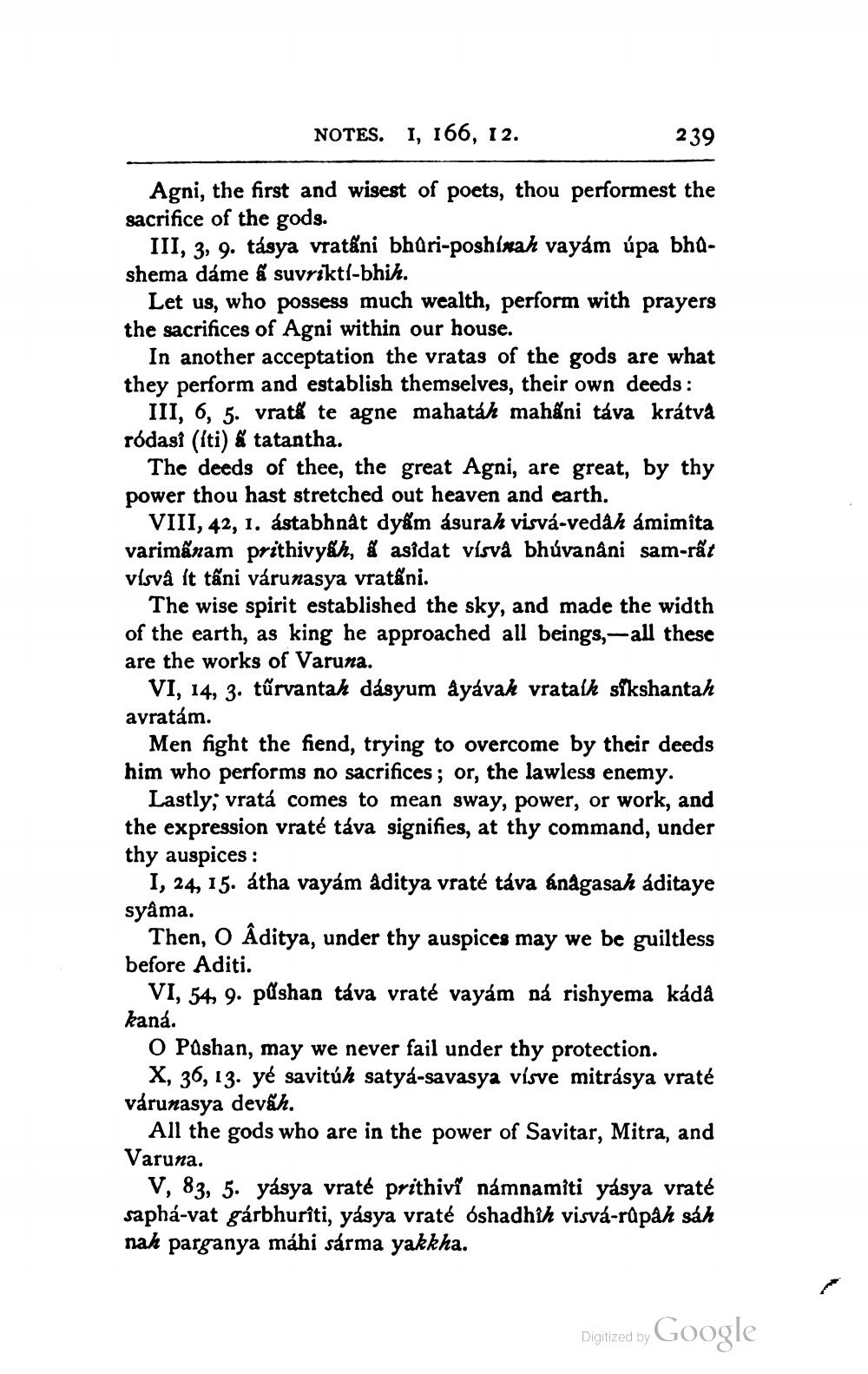________________
NOTES. I, 166, 12.
239
Agni, the first and wisest of poets, thou performest the sacrifice of the gods.
III, 3, 9. tásya vratâni bhuri-poshirah vayám úpa bhashema dáme & suvrikti-bhih.
Let us, who possess much wealth, perform with prayers the sacrifices of Agni within our house.
In another acceptation the vratas of the gods are what they perform and establish themselves, their own deeds :
III, 6, 5. vratá te agne mahatah mahấni táva krátva ródasi (iti) & tatantha.
The deeds of thee, the great Agni, are great, by thy power thou hast stretched out heaven and earth.
VIII, 42, 1. ástabhnat dyám ásurah visvá-vedáh ámimita varimănam prithivysh, & asidat visva bhúvanâni sam-rất ví và ít tốni virumasya vratấni.
The wise spirit established the sky, and made the width of the earth, as king he approached all beings,-all these are the works of Varuna.
VI, 14, 3. tűrvantah dásyum ayávak vratalk síkshantah avratám.
Men fight the fiend, trying to overcome by their deeds him who performs no sacrifices; or, the lawless enemy.
Lastly, vratá comes to mean sway, power, or work, and the expression vraté táva signifies, at thy command, under thy auspices :
I, 24, 15. átha vayám aditya vraté táva ánagasah aditaye syåma.
Then, O Âditya, under thy auspices may we be guiltless before Aditi.
VI, 54, 9. půshan táva vraté vayám ná rishyema kádá kaná.
O Pashan, may we never fail under thy protection.
X, 36, 13. yé savitúh satya-savasya vísve mitrásya vraté várunasya devah.
All the gods who are in the power of Savitar, Mitra, and Varuna.
V, 83, 5. yásya vraté prithivî námnamiti yásya vraté sapha-vat gárbhurîti, yasya vraté oshadhih visvá-rūpåh sáh nah parganya máhi sarma yakkha.
Digitized by
Digitized by Google




